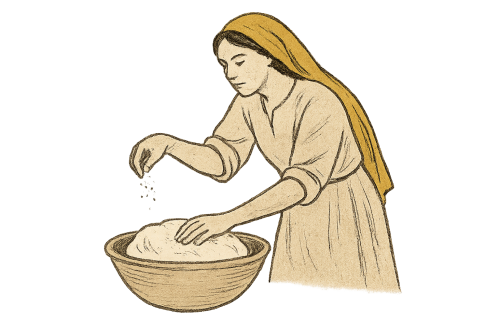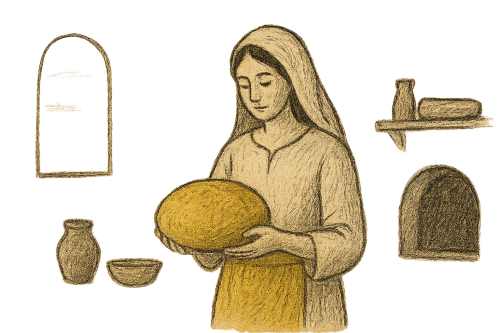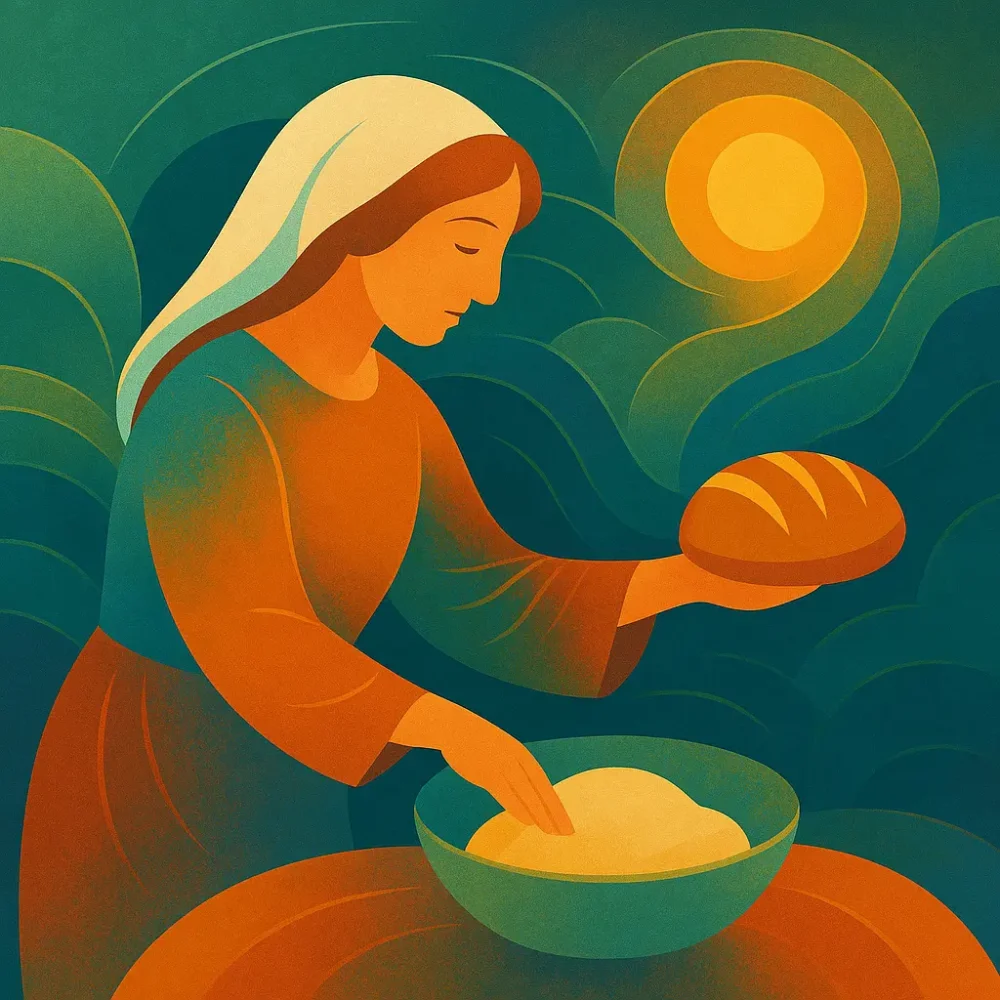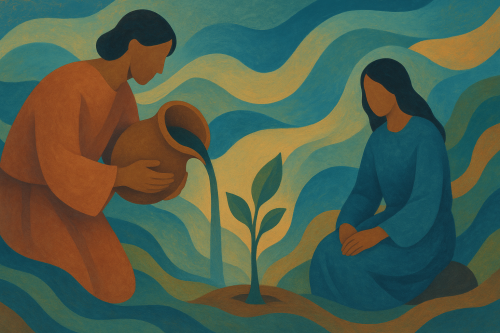The Parable of the Leaven may be one of Jesus’ shortest teachings, but its meaning is profound and far-reaching. In just one verse, Christ reveals a powerful truth about the hidden, transformative nature of God’s Kingdom. Let us examine the biblical context, explore its spiritual significance, and uncover what this parable tells us about how God’s reign grows in the world and in our hearts.
What Is the Parable of the Leaven?
The Parable of the Leaven is found in both Matthew and Luke It is one of the shortest parables Jesus told.
“He told them another parable. ‘The kingdom of heaven is like leaven that a woman took and hid in three measures of flour, till it was all leavened.’” (Matthew 13:33)
Matthew 13:33
“And again he said, ‘To what shall I compare the kingdom of God? It is like leaven that a woman took and hid in three measures of flour, until it was all leavened.’” (Luke 13:20–21)
Luke 13:20–21
At first glance, this parable might seem like a simple domestic analogy, but it carries profound implications about how God’s kingdom grows and influences the world.

What Is Leaven?
In the ancient world, leaven (or yeast) was a small lump of fermented dough. A woman would knead it into a large batch of flour. Over time, the leaven would spread through the dough, causing the whole batch to rise.
The Meaning of the Parable
The Kingdom of God Often Works Quietly but Powerfully
Just as leaven works silently and unseen within the dough, God’s kingdom grows in hidden and subtle ways. It doesn’t always come with fanfare or political revolution. Often, it begins in the heart, transforming individuals before communities and cultures.
“Do not despise these small beginnings, for the Lord rejoices to see the work begin.” (Zechariah 4:10)
Zechariah 4:10
The early church started with a handful of disciples but has now reached across every continent. This parable reminds us that transformation often starts small but alongside the Spirit will have immense power.
God’s Kingdom Makes Us New
Leaven changes the nature of the dough. Similarly, the gospel transforms lives. It doesn’t merely improve people – it makes them new.
“If anyone is in Christ, he is a new creation. The old has passed away; behold, the new has come.” (2 Corinthians 5:17)
2 Corinthians 5:17
The parable teaches that once the gospel is embedded in someone’s life, it begins to work – changing attitudes, renewing minds, and leading to a Christ-like character.
The Kingdom Is Meant to Fill the Whole Earth
The woman in the parable doesn’t leaven just part of the dough – she leavens the entire batch. This points to the universal scope of the gospel.
“For the earth will be filled with the knowledge of the glory of the Lord as the waters cover the sea.” (Habakkuk 2:14)
Habakkuk 2:14
The gospel is not limited to a particular people, place, or culture. God desires that all nations, tribes, and tongues come to know Him.
Faith and Patience
Leaven takes time to work. The woman had to wait until the dough was fully leavened. Likewise, the growth of the Kingdom requires patience. It teaches believers not to grow weary but to trust God’s timing.
“And let us not grow weary of doing good, for in due season we will reap, if we do not give up.” (Galatians 6:9)
Galatians 6:9
We may not always see immediate results, but God is always working, even when we don’t think we see it.

Conclusion
In an age of instant gratification and visible success, the Parable of the Leaven encourages us to trust the slow, powerful work of God. As followers of Christ, we are invited to be leaven in our communities, living and sharing the gospel in ways that permeate culture with grace, truth, and hope.




